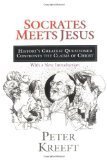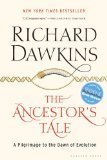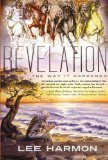Lee Harmon's Blog, page 136
March 8, 2011
Genesis 8:6-9
After forty days Noah opened the window he had made in the ark and sent out a raven, and it kept flying back and forth until the water had dried up from the earth. Then he sent out a dove to see if the water had receded from the surface of the ground. But the dove could find no place to set its feet because there was water over all the surface of the earth; so it returned to Noah in the ark.
//Flood myths are numerous outside the Bible, but the Mesopotamian story is particularly fascinating when compared to Noah in the Bible. This story can be found in the Epic of Gilgamesh.
In this version, the ark builder's name is Utnapishtim, who is warned ahead of time of the gods' plan to flood the earth. In seven days, he built a ship with seven decks, and loaded his family and goods (including animals, of course). The weather grew frightful and rained seven days. Water covered the land. On the seventh day, the sea quieted, and the boat came to rest on Mount Nisir. (Noah's ark rested on Mount Ararat.)
Utnapishtim then waited seven days and released a dove. The dove came back. He tried a swallow next, which also returned. Finally, Utnapishtim sent out a raven, which did not return. It had found dry land. So, Utnapishtim disembarked and, like Noah, offered sacrifice.
Fascinating, but not nearly as fascinating at this little tidbit: The Epic of Gilgamesh is perhaps the oldest written story on earth, penned about 2,000 BC. Long before any of the Bible was written. It's about the adventures of the historical King of Uruk, who reigned around 2,500 BC or a little before. The traditional Biblical dating of Noah's flood agrees within a couple hundred years.
//Flood myths are numerous outside the Bible, but the Mesopotamian story is particularly fascinating when compared to Noah in the Bible. This story can be found in the Epic of Gilgamesh.
In this version, the ark builder's name is Utnapishtim, who is warned ahead of time of the gods' plan to flood the earth. In seven days, he built a ship with seven decks, and loaded his family and goods (including animals, of course). The weather grew frightful and rained seven days. Water covered the land. On the seventh day, the sea quieted, and the boat came to rest on Mount Nisir. (Noah's ark rested on Mount Ararat.)
Utnapishtim then waited seven days and released a dove. The dove came back. He tried a swallow next, which also returned. Finally, Utnapishtim sent out a raven, which did not return. It had found dry land. So, Utnapishtim disembarked and, like Noah, offered sacrifice.
Fascinating, but not nearly as fascinating at this little tidbit: The Epic of Gilgamesh is perhaps the oldest written story on earth, penned about 2,000 BC. Long before any of the Bible was written. It's about the adventures of the historical King of Uruk, who reigned around 2,500 BC or a little before. The traditional Biblical dating of Noah's flood agrees within a couple hundred years.
Published on March 08, 2011 07:36
March 7, 2011
Book review: Socrates Meets Jesus
 by Peter Kreeft
by Peter Kreeft
★★★★
If we were to revive Socrates, what would he think of today's world?
This is a light-hearted—dare I say "cute" without offending Kreeft—conversation with the most famous of all philosophers. Socrates, who lived long before Jesus came on the scene, awakens in the 21st century and enrolls in a divinity school. In typical Socratic pursuit, he aims at uncovering the truth about the Bible and this man, Jesus, who made such a profound impact on the world. Jesus, he learns, was God in the flesh. Not a God, but the God. Remarkable! Who could ever believe in a "one and only" God?
Socrates discusses Jesus with fellow students Bertha Broadmind, Tomas Keptic, and Molly Mooney, and soon takes on the professors themselves, leaving them in a bewildered state of confusion about everything they thought they understood. By the book's end, Socrates takes on the big question—the resurrection—and comes to a startling conclusion.
An enjoyable read!
(click picture to buy on Amazon)
Published on March 07, 2011 07:08
March 6, 2011
Mark 15:34
And at the ninth hour Jesus cried out in a loud voice, "Eloi, Eloi, lama sabachthani?"—which means, "My God, my God, why have you forsaken me?"
//The first three Gospels report Jesus crying loudly from the cross before he dies. In Mark, the first Gospel written, it's a primal scream of loneliness and despair. Matthew, the second Gospel written, agrees with Mark about the words of this final death cry, but Luke—the third Gospel—cannot imagine a Christ this human, and changes the death cry thusly:
Luke 23:46 Jesus called out with a loud voice, "Father, into your hands I commit my spirit." When he had said this, he breathed his last.
Much better. Jesus now dies heroically, his final act a humanitarian promise to a thief beside him, his final cry welcoming the warmth of his Father's embrace. It is the exact opposite of Mark, but precisely the image Luke portrays of Jesus throughout his Gospel.
So what does the final Gospel say? John, remember, gives hints throughout his Gospel that Jesus will be lifted up in glory. This "lifting up," he explains at one point, refers precisely to Jesus being lifted up on the cross. So, for John, the cross is the greatest victory of all. Listen to the final words of Jesus in this Gospel:
John 19:30 When he had received the drink, Jesus said, "It is finished." With that, he bowed his head and gave up his spirit.
John's Jesus remains in perfect control of his surroundings, from beginning to end. John's Jesus, you will recall, is a stranger to the earth, dispatched by his Father in heaven, with a job to do. His last act is to accept a drink of vinegar, so that every scripture will be fulfilled, and his last words indicate an earthly job completed.
Very different theologies. What do you think Jesus' final words were?
//The first three Gospels report Jesus crying loudly from the cross before he dies. In Mark, the first Gospel written, it's a primal scream of loneliness and despair. Matthew, the second Gospel written, agrees with Mark about the words of this final death cry, but Luke—the third Gospel—cannot imagine a Christ this human, and changes the death cry thusly:
Luke 23:46 Jesus called out with a loud voice, "Father, into your hands I commit my spirit." When he had said this, he breathed his last.
Much better. Jesus now dies heroically, his final act a humanitarian promise to a thief beside him, his final cry welcoming the warmth of his Father's embrace. It is the exact opposite of Mark, but precisely the image Luke portrays of Jesus throughout his Gospel.
So what does the final Gospel say? John, remember, gives hints throughout his Gospel that Jesus will be lifted up in glory. This "lifting up," he explains at one point, refers precisely to Jesus being lifted up on the cross. So, for John, the cross is the greatest victory of all. Listen to the final words of Jesus in this Gospel:
John 19:30 When he had received the drink, Jesus said, "It is finished." With that, he bowed his head and gave up his spirit.
John's Jesus remains in perfect control of his surroundings, from beginning to end. John's Jesus, you will recall, is a stranger to the earth, dispatched by his Father in heaven, with a job to do. His last act is to accept a drink of vinegar, so that every scripture will be fulfilled, and his last words indicate an earthly job completed.
Very different theologies. What do you think Jesus' final words were?
Published on March 06, 2011 07:49
March 5, 2011
Book review: The Ancestor's Tale
 by Richard Dawkins
by Richard Dawkins★★★★★
While I read different genres, I only review books with a religious content. So, if I may be excused for one of my "liberal Christian rants," let me say this: It's a sad day when a book about evolution earns a spot on the shelves of a religion blog. It simply astounds me that half of all Americans still do not believe in evolution. The evidence is so overwhelmingly against a young earth that if Christianity is going to survive, it must pull its head out of the sand and reinterpret the Bible's creation story (anything but a literal interpretation!) before it alienates the coming generation, who will simply know better.
This book will help. I'm not a fan of Dawkins' anti-religion tirades, but when he sticks to his evolutionary biology, his writing is a pure delight. It's insightful, highly intelligent, and witty. The subtitle of the book is A Pilgrimage to the Dawn of Evolution, and it's a long journey backward in time from present-day humans to the beginnings of life four million years ago.
You'll meet Cro-Magnon man, the Neanderthals, chimpanzees and gorillas, monkeys, rodents and rabbits, reptiles, sharks, flatworms, sponges, fungi, plants, and far more, each with their own unique role and story to tell.
Scientific understanding is, and ever will be, in a state of transition. As we learn, we shape our theories to fit the facts. It's an exploration that never ends, an exciting quest for truth that Dawkins excels in sharing. He stops often along this journey back in time to introduce interesting life forms and their evolutionary sidebars, evoking wonder and appreciation for the real creation story that far exceeds any ancient tales. It's such a treat that I'm almost envious of long-time creationists who can, by opening their minds and turning the cover of this book, open themselves up to a new world of wonder.
You will see the world in a different way after reading this.
(click picture to buy on Amazon)

Published on March 05, 2011 07:20
March 4, 2011
Isaiah 7:14
Therefore the Lord himself will give you a sign. Behold, a young woman shall conceive and bear a son, and shall call his name Immanuel.
//In this chapter, Isaiah speaks to King Ahaz, offering a sign from God. Ahaz wishes not to "put God to the test," but Isaiah provides a sign anyhow, telling the king that God will save them from the present military threat of "two kings." All this will happen soon; before a certain young woman's son (presumably one who is currently pregnant) will be old enough to discern good from evil.
The identity of this young woman is undisclosed. Some scholars suggest it is Isaiah's wife. Some take the coming child to be the crown prince, son of Ahaz. Others think it may have simply been a pregnant woman whom Isaiah noticed as he was addressing the king.
So that's the scene of what's going on in Ahaz's court that day in the eighth century B.C. But the real story behind this verse comes much later. Let me first emphasize that the phrase which describes the pregnant mother, here in the NSRV and almost all other modern translations, is "young woman." The Hebrew word 'alma' is neutral with regard to marital status or sexual experience. But when the Hebrew was translated into Greek six hundred years later, the phrase "young woman" inexplicably became "virgin."
Fast forward two hundred more years, where Matthew, reading the Greek version of Isaiah, decides to apply this scripture to Jesus. Rumors of Jesus' miraculous birth had already begun (Luke also tells a virgin-birth story, though it differs in fundamental ways), and Matthew loves to quote scripture to bolster his story.
Matthew 1:23—"Behold, a virgin shall conceive and bear a son, and his name shall be called Immanuel"
Never mind the context and immediacy of Isaiah's prophecy. Never mind that Mary never named her son Immanuel. Matthew repeated the Greek mistranslation, and the above quotation from Isaiah suddenly grew into one of the most popular verses in Christian history.
//In this chapter, Isaiah speaks to King Ahaz, offering a sign from God. Ahaz wishes not to "put God to the test," but Isaiah provides a sign anyhow, telling the king that God will save them from the present military threat of "two kings." All this will happen soon; before a certain young woman's son (presumably one who is currently pregnant) will be old enough to discern good from evil.
The identity of this young woman is undisclosed. Some scholars suggest it is Isaiah's wife. Some take the coming child to be the crown prince, son of Ahaz. Others think it may have simply been a pregnant woman whom Isaiah noticed as he was addressing the king.
So that's the scene of what's going on in Ahaz's court that day in the eighth century B.C. But the real story behind this verse comes much later. Let me first emphasize that the phrase which describes the pregnant mother, here in the NSRV and almost all other modern translations, is "young woman." The Hebrew word 'alma' is neutral with regard to marital status or sexual experience. But when the Hebrew was translated into Greek six hundred years later, the phrase "young woman" inexplicably became "virgin."
Fast forward two hundred more years, where Matthew, reading the Greek version of Isaiah, decides to apply this scripture to Jesus. Rumors of Jesus' miraculous birth had already begun (Luke also tells a virgin-birth story, though it differs in fundamental ways), and Matthew loves to quote scripture to bolster his story.
Matthew 1:23—"Behold, a virgin shall conceive and bear a son, and his name shall be called Immanuel"
Never mind the context and immediacy of Isaiah's prophecy. Never mind that Mary never named her son Immanuel. Matthew repeated the Greek mistranslation, and the above quotation from Isaiah suddenly grew into one of the most popular verses in Christian history.
Published on March 04, 2011 06:36
March 3, 2011
Book review: Revelation: The Way it Happened

 by Lee Harmon
by Lee Harmon★★★★★
This short review of my latest book is by Midwest Book Review. Established in 1976, Midwest Book Review produces several review publications per month, with a goal of encouraging small press and increasing literacy. It selects about 450 books to review out of the 1,500 submitted each month. The organization has a focus on serving community and academic library organizations located in California, Wisconsin, and the upper Midwest.
---------
A well researched and thoughtful read that definitely should not be overlooked.
The book of Revelation causes a rift with some Biblical scholars. "Revelation: The Way it Happened" is a novel on the writings of the John of Revelation, writing in the first century AD, looking to provide insight into the lives of the earliest Christians and what mattered to them in a world that shunned them and the principles that Christians most held dear. Drawing on history and Revelation alike, "Revelation" is a well researched and thoughtful read that definitely should not be overlooked.
(click picture to buy on Amazon)
Published on March 03, 2011 06:31
March 2, 2011
John 1:1
In the beginning was the Word, and the Word was with God, and the Word was God.
//This post may be most interesting to those Christians who don't picture Jesus as divine. Or, at least, do not equate Jesus with God.
Most of the evidence in the Bible for Jesus' divinity comes from the Gospel of John. In this Gospel, the Jews prepare to stone Jesus for claiming to be God. Thomas, upon seeing the risen Christ, proclaims "My Lord and my God." A number of more subtle hints exist throughout the Gospel. But the most direct claim is obtained by combining verse 1:1 with verse 1:14. First, we read that the Word was God. Now we read that the Word means Jesus:
The Word became flesh and made his dwelling among us. We have seen his glory, the glory of the One and Only, who came from the Father, full of grace and truth.
Here, the word translated into "Word" is the Greek word logos, a word used nowhere else in the New Testament. It is the name stoics gave to the order of the universe, and the term Philo used to reconcile Stoicism and Judaism. John appears to have adapted this word to the Old Testament mystery of Wisdom, which appears often in personified form, especially in the Wisdom literature. Logos is the mind of God controlling this world, the force changing it from chaos to order, and since the time of Heraclitus in the sixth century B.C., it portrayed a philosophical line of thought known well by all learned men in the Hellenistic world, much as scholars might today discuss evolution or Einstein's Theory of Relativity.
This logos is Jesus, John says. Is he being purposefully mysterious? Whatever he means by "logos"—and Johannine scholars will probably never agree—John clearly calls upon us to understand Jesus, and his relation to God the Father, in a new way.
//This post may be most interesting to those Christians who don't picture Jesus as divine. Or, at least, do not equate Jesus with God.
Most of the evidence in the Bible for Jesus' divinity comes from the Gospel of John. In this Gospel, the Jews prepare to stone Jesus for claiming to be God. Thomas, upon seeing the risen Christ, proclaims "My Lord and my God." A number of more subtle hints exist throughout the Gospel. But the most direct claim is obtained by combining verse 1:1 with verse 1:14. First, we read that the Word was God. Now we read that the Word means Jesus:
The Word became flesh and made his dwelling among us. We have seen his glory, the glory of the One and Only, who came from the Father, full of grace and truth.
Here, the word translated into "Word" is the Greek word logos, a word used nowhere else in the New Testament. It is the name stoics gave to the order of the universe, and the term Philo used to reconcile Stoicism and Judaism. John appears to have adapted this word to the Old Testament mystery of Wisdom, which appears often in personified form, especially in the Wisdom literature. Logos is the mind of God controlling this world, the force changing it from chaos to order, and since the time of Heraclitus in the sixth century B.C., it portrayed a philosophical line of thought known well by all learned men in the Hellenistic world, much as scholars might today discuss evolution or Einstein's Theory of Relativity.
This logos is Jesus, John says. Is he being purposefully mysterious? Whatever he means by "logos"—and Johannine scholars will probably never agree—John clearly calls upon us to understand Jesus, and his relation to God the Father, in a new way.
Published on March 02, 2011 06:48
March 1, 2011
Book review: The Historical Jesus: Five Views

 Edited by James K. Beilby and Paul Rhodes Eddy
Edited by James K. Beilby and Paul Rhodes Eddy★★★★★
Five noted scholars discuss what we can determine about the historical Jesus: Robert Price, Dominic Crossan, Luke Timothy Johnson, James Dunn, and Darrell Bock. It's a wide range, from confirmed believers to one who argues that no historical Jesus existed at all.
Jesus scholarship continues to evolve, but it seems to me to be spiraling the target instead of zeroing in. For example, virtually all scholars now accept that Jesus was recognized by his contemporaries as a miracle worker and healer, while less trust is being placed in the "embarrassment criteria" that has prompted scholars to trust the Gospel of Mark above others.
The book is presented in debate style, and the contributors pull no punches. Each presents a short argument, maybe 30 pages long, and then each of the other four write a few pages of critique in response.
Like any good debate, it may leave you more confused than when you began, but if I must choose a "winner," this time I pick the conservatives. (Please understand that, by "conservative," I mean relatively so; Christianity within reason—rejection of critical scholarship is not a prerequisite to believing.) I've gained a new respect for Bock, and I was especially impressed by Dunn's discussion of oral tradition. Dunn argues that it's reasonable, once we capture in our minds the faith of the first followers of Jesus, to trace the Gospel writings back through normal oral transmission to Jesus himself, and suggests that the Gospels are not taken seriously enough by Jesus scholars. It is those who were so greatly impressed by Jesus that can give us the best glimpse of why they were impressed. He closes with this provocative conclusion: "Those who still experience the Jesus tradition as living tradition may well be best placed to appreciate the initial stages of the traditioning process, that it is the ear of faith which is likely to hear the Gospels most effectively, and that the living quality of the Jesus tradition is most likely to be experienced by those who in effect sit with these early assemblies in sharing their memories of Jesus and in seeking to live by them."
(click picture to buy on Amazon)
Published on March 01, 2011 07:09
February 28, 2011
Genesis 30:6
Then Rachel said, "God has vindicated me; he has listened to my plea and given me a son." Because of this she named him Dan.
//Well, to be honest, it wasn't Rachel's son, but her handmaiden, Bilbah, who slept with Jacob and provided a son named Dan. One of the twelve sons of Jacob, one of the twelve tribes of Israel.
The tribe of Dan always seemed a bit of an outcast. They tolerated idols, and they were the only tribe not allowed into the New Jerusalem in Revelation. The hero of Dan's tribe was Samson, who spent more time with the Philistines than he did the Israelites.
Some wonder if Dan was originally a tribe at all. The Song of Deborah sings about Dan dwelling on his ships, indicating a sea-going people, and maybe this provides a clue. The Philistines arrived in Canaan about the same time as the Israelites, and came by sea. Among the Sea Peoples arriving in Canaan were a group called the Danuna, possibly a remnant of the Greek Danoi, the people identified by Homer as the invaders of Troy. This group may have relocated inward from the coast, supposedly as a split-off, and carried Philistine pottery there with them. The theory posits that the tribe of Dan were chased north by the other Philistines and joined the Israelite confederation for protection.
//Well, to be honest, it wasn't Rachel's son, but her handmaiden, Bilbah, who slept with Jacob and provided a son named Dan. One of the twelve sons of Jacob, one of the twelve tribes of Israel.
The tribe of Dan always seemed a bit of an outcast. They tolerated idols, and they were the only tribe not allowed into the New Jerusalem in Revelation. The hero of Dan's tribe was Samson, who spent more time with the Philistines than he did the Israelites.
Some wonder if Dan was originally a tribe at all. The Song of Deborah sings about Dan dwelling on his ships, indicating a sea-going people, and maybe this provides a clue. The Philistines arrived in Canaan about the same time as the Israelites, and came by sea. Among the Sea Peoples arriving in Canaan were a group called the Danuna, possibly a remnant of the Greek Danoi, the people identified by Homer as the invaders of Troy. This group may have relocated inward from the coast, supposedly as a split-off, and carried Philistine pottery there with them. The theory posits that the tribe of Dan were chased north by the other Philistines and joined the Israelite confederation for protection.
Published on February 28, 2011 06:28
February 27, 2011
Book review: The Beast of Revelation
 by Kenneth L. Gentry Jr.
by Kenneth L. Gentry Jr.
★★★★★
I believe this is the book (I read the first version, before its reprint in 2002) that first introduced me to the preterist way of interpreting Revelation. This interpretation posits that most, if not all, of Revelation's promises were fulfilled in the first century. I was utterly fascinated, and this book still holds a special place in my library.
The book is a condensation of a much larger work by Gentry: Before Jerusalem Fell. It's broken into two parts. The first half is a description of Nero Caesar and how he fits the beast of Revelation to a T. The second half is an analysis of the dating of Revelation.
Gentry concludes Revelation was written before the great war of 70 A.D., when Jerusalem was destroyed and the Temple leveled by the Romans. I came to disagree with him, as you may know from my own book. Gentry describes his approach: "Holding to an unshakable conviction regarding Scripture's divine inspiration, I also afford its inherent authority, infallibility, and inerrancy." Well, there you go, of course a person who studies the first-century message of Revelation, and begins with the assumption that it prophesies the events it describes, would have to conclude that it was written beforehand.
Nevertheless, Gentry is an interesting writer with a fascinating message. That adds up to a very readable book, and earns it five stars.
Gentry, himself, remains for me an enigma who refuses contact. It's possible I've offended him by contradicting his conclusions in my own book, but for whatever the reason, he won't entertain, for debate or even discussion, theories that contradict his own interpretation. Because he pursues his scholarship in a bubble, his writings must be taken with a grain of salt, yet his perspective definitely deserves attention. This is a book I'm certain will make you think.
(click picture to buy on Amazon)
Published on February 27, 2011 07:46



